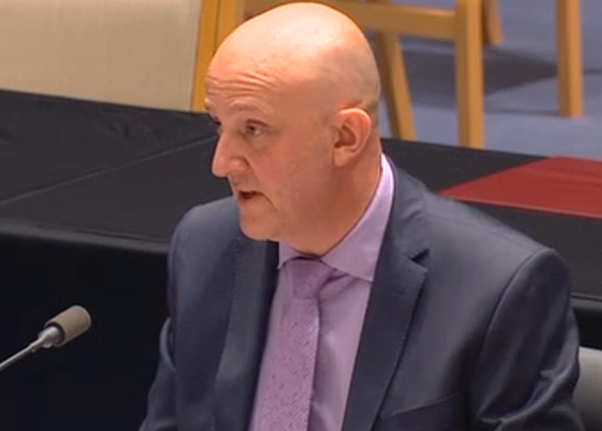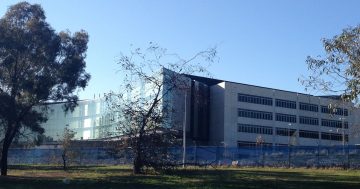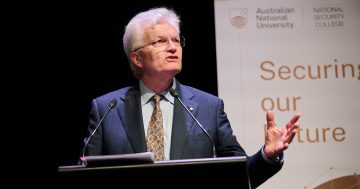
ASIO Director-General Mike Burgess. Photo: Screenshot.
Which government agency has extraordinary powers to spy on others? And which agency wants more power to do more of that, only with greater legal protection? The answer to both is ASIO.
The National Security Legislation Amendment (Comprehensive Review and Other Measures No. 2) Bill is currently being considered by the Parliamentary Joint Committee on Intelligence and Security.
If it eventually gets passed into law, Australian Security Intelligence Organisation (ASIO) officers would have unprecedented powers to run interference around persons of interest, without any legal ramifications.
Spies would be able to intercept a greater number of digital devices, modify data and even disable devices remotely, all in the line of duty and without authorisation.
Appearing before the committee this week, ASIO director-general Mike Burgess said the changes being sought relate to how intelligence officers can examine the digital footprints of those they are tracking.
The changes would give ASIO spies greater legal protection for conducting what Mr Burgess describes as more effective methods of operation.
“These defences are about times when we have to identify a device of a known target or what devices are around a person of interest, both in terms of where we are with that investigative subject, where they might be, and they where we think they are.” he told the committee.
“That covert activity itself would require a warrant for us to do. But actually in preparation for covert activity, which requires a warrant, it may well be that we are doing situational awareness to assess an environment.
“And that would include identifying devices present in a certain area, that we may need to conduct some operation activity on.”
On its parliamentary website, the committee describes the Bill as proposing amendments to: “A number of Commonwealth Acts to enhance the legislative framework of the National Intelligence Community by implementing some of the recommendations of the Comprehensive Review of the Legal Framework of the National Intelligence Community (Richardson Review) and for other purposes.”
Included are new protections to be inserted into the Criminal Code for ASIO officers, those seconded to the agency from other departments, and even contractors working there.
In addition to changing the Criminal Code, the Bill seeks amendments to 12 other Commonwealth Acts.
Department of Home Affairs first assistant secretary Nicole Spencer said the changes being sought were necessary because of increased threats posed from foreign interference.
She referred to Mr Burgess’s annual threat assessment address, delivered in February, where he described “unprecedented” levels of well-placed Australian figures being targeted by foreign spies.
The director-general said public sector bureaucrats, along with journalists, judiciary, academics and military veterans were among the most targeted.
“Based on what ASIO is seeing, more Australians are being targeted for espionage and foreign interference than at any time in Australia’s history,” Mr Burgess said in his February address.
“More hostile foreign intelligence services, more spies, more targeting, more harm, more ASIO investigations, more ASIO disruptions.
“From where I sit, it feels like hand-to-hand combat.
“This means ASIO is busier than ever before. Busier than any time in our 74-year history.
“Busier than the Cold War; busier than 9/11; busier than the height of the caliphate.”
The committee must now deliver a report on the Bill by the end of this month.



















